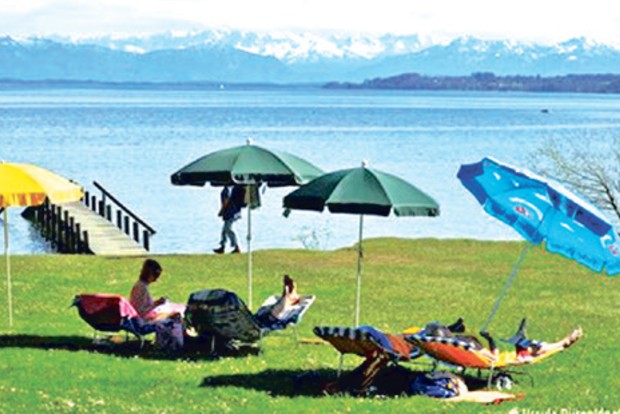Begin typing your search...
Sustainable travel in post-pandemic era
Last summer showed what more sustainable tourism could look like: many people opted for vacations in their own country. According to FUR, Germans, for instance, took around 4 million more domestic trips than they did in 2019.

Chennai
The problems brought about by the growth of global tourism in recent years were all too obvious: overcrowded cities, environmental degradation and high CO2 pollution from air travel. Calls for a more sustainable reboot of the travel industry after the coronavirus pandemic have been growing louder. The United Nations World Tourism Organization (UNWTO) has now called for a “responsible recovery of the tourism sector” in order to “balance the needs of people, the planet and prosperity.” That has inspired Berlin’s annual International Tourism Fair (ITB), which is being held from March 9-12 under the motto “Rethink, Regenerate, Restart Tourism for a Better Normal.” Due to the pandemic, the world’s largest travel trade show will be held digitally for the first time in its history.
“The coronavirus pandemic has been a global shock moment that has led to a rethink in the tourism industry, which is so accustomed to success,” said Martin Balas of the Center for Sustainable Tourism (ZENAT) at the Eberswalde University for Sustainable Development. Issues such as climate protection and over-tourism, which were already major challenges for tourism before COVID, have now come into even sharper focus, Balas told DW. The German Travel Association (DRV) also sees the coronavirus pandemic as an opportunity for more sustainability in the industry.
“Sustainable travel is a trend that has been around for years, and the travel industry has already responded to it and will continue to do so in the future,” said Ellen Madeker of DRV. Several large travel companies are preparing awareness campaigns designed to increase travellers’ awareness of the impacts of travel. Industry giant DER Touristik is also headlining its new offer of sustainable travel in Europe, Turkey and Egypt. As soon as long-distance travel is possible again, the range of sustainable trips will be further expanded overall, Ulrike Braun, head of sustainability at DER Touristik, told DW. “We have a responsibility as a travel industry. We depend heavily on the preservation of destinations, of the country and its people. That is the basis of our business,” she said.
However, the travel industry has been one of the hardest-hit sectors in the coronavirus pandemic. According to UNWTO, the industry recorded a loss of $1.3 trillion in 2020 alone. Worldwide, between 100 and 120 million jobs are also at stake. In Germany, spending on vacation travel fell by almost 40%, according to a recent study by the Holidays and Travel Research Association (FUR). This could make a reboot focusing on sustainable travel for the industry more difficult, said Madeker of DRV. Overall, she said, tour operators are seeing the increased need for more sustainable travel and are responding to it. “But in order to implement such concepts and invest in sustainable infrastructure, business first has to pick up again.”
Last summer showed what more sustainable tourism could look like: many people opted for vacations in their own country. According to FUR, Germans, for instance, took around 4 million more domestic trips than they did in 2019. The number of air trips and cruises fell drastically in 2020, while demand for camper vans, motorhomes and bicycles rose. Faced with pandemic restrictions, many travellers also opted for more sustainable alternatives when choosing their accommodation: many preferred vacation apartments or campsites to hotels, for safety and hygienic reasons. In doing so, they improved the carbon footprint of their vacation whether intentionally or not, and reduced water consumption and waste production. But even with these initiatives, there is still a long way to go before sustainable tourism is the norm internationally. Vacationers need to book more sustainable trips and pay more attention to their environment during the trip itself so that the change toward better tourism can succeed in the future.
This article was provided by Deutsche Welle
Visit news.dtnext.in to explore our interactive epaper!
Download the DT Next app for more exciting features!
Click here for iOS
Click here for Android
Next Story



